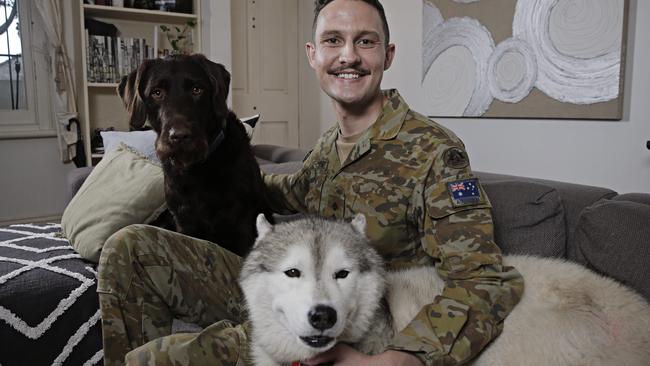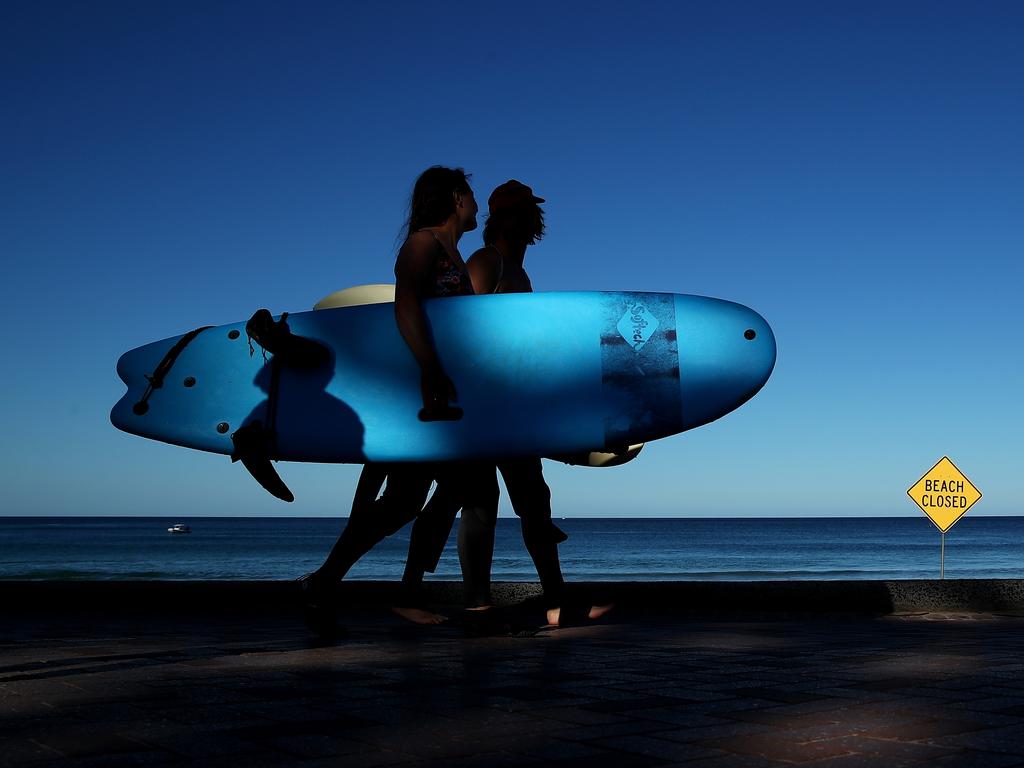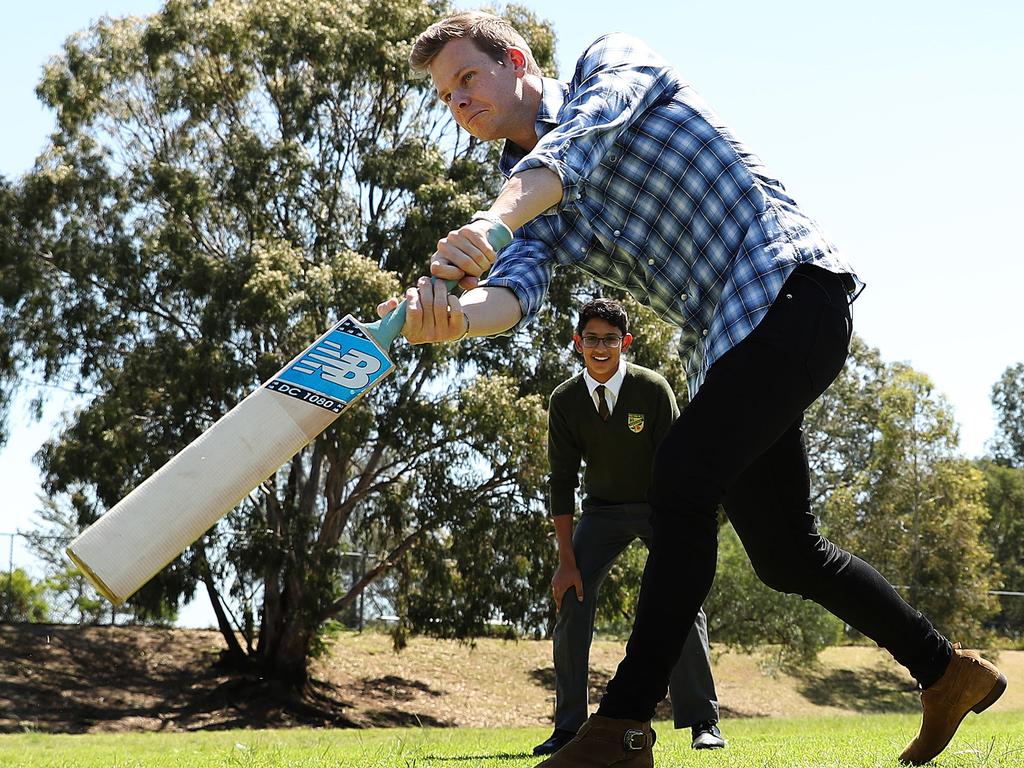Coronavirus: Men ‘need more emotional support’
When army captain Hugo Toovey looks back on his first battle with cancer, he can see he didn’t seek out the support of mates.

When army captain Hugo Toovey looks back on his first battle with cancer seven years ago, he can see he didn’t seek out the support of mates, taking on much of the emotional burden himself.
This time, he’s leaning on his old friends from school and newer ones from the army more as he takes on bowel cancer.
“The first time it was testicular cancer. I was 21 and I was just not as open with my feelings and reaching out to friends,” Captain Toovey, now 28, told The Australian. “I was almost embarrassed I had cancer of the testicle.
“It’s funny what we build up in our heads. I remember during my first rounds of chemo I had no hair, and I went to a party convinced everyone was staring at me. When I spoke to one person, they said they thought I was bald as part of being in the army.”
Four weeks ago, Captain Toovey went through his sixth and hopefully last operation for bowel cancer. He has learnt his lesson.
“You come to realise friends and family are so critical, and you become more prepared to share, to let them in. When I told my mates my story, I think they got a better sense of me and what I was going through, and also I got some therapeutic value as well.
“You realise you aren’t going through it by yourself.”
As the nation faces into the emotional and psychological ramifications of COVID-19, new research shows Australian men are still in the early stages of Captain Toovey’s personal journey, struggling to give or receive emotional support no matter how much they might want it.
A survey by men’s health charity Movember found that while eight in 10 men say they are happy to be asked how they’re travelling through the COVID-19 pandemic, fewer than half (48 per cent) say they have been approached by friends or family, compared with 60 per cent of women.
Men are also less likely to check in to see how friends and family are coping, with 29 per cent of men having no such contact compared with 16 per cent of women. The research found that men aged above 45 are struggling the most with maintaining social connections with friends, with 61 per cent admitting they are less connected since the beginning of the outbreak, compared with 53 per cent of men aged 18 to 24.
Almost one in three men (29 per cent) admits to feeling lonely more often than before the outbreak, the survey of more than 1400 Australians found.
“Men are hungry for connection and in need of support in these trying times,” clinical psychologist Zac Seidler, Movember’s director of mental health, said. “As the country slowly gets back to business, the residual stress of this pandemic may bubble to the surface and some will be doing it tougher than others. While these conversations can feel uncomfortable or awkward, checking in on your mates and loved ones can make the world of difference. Don’t assume they don’t want to be bothered or don’t want to talk. Just making the call can go a long way.”
Captain Toovey, a Movember ambassador, maintains a group of 20 school friends who regularly catch up. “There was a time after a massive surgery, where I’d spent a month in hospital … They chipped in $50 each and sent a card saying when you recover use the money to take (his partner) Amber away for a weekend on us. It was a great feeling to read that card.”








To join the conversation, please log in. Don't have an account? Register
Join the conversation, you are commenting as Logout